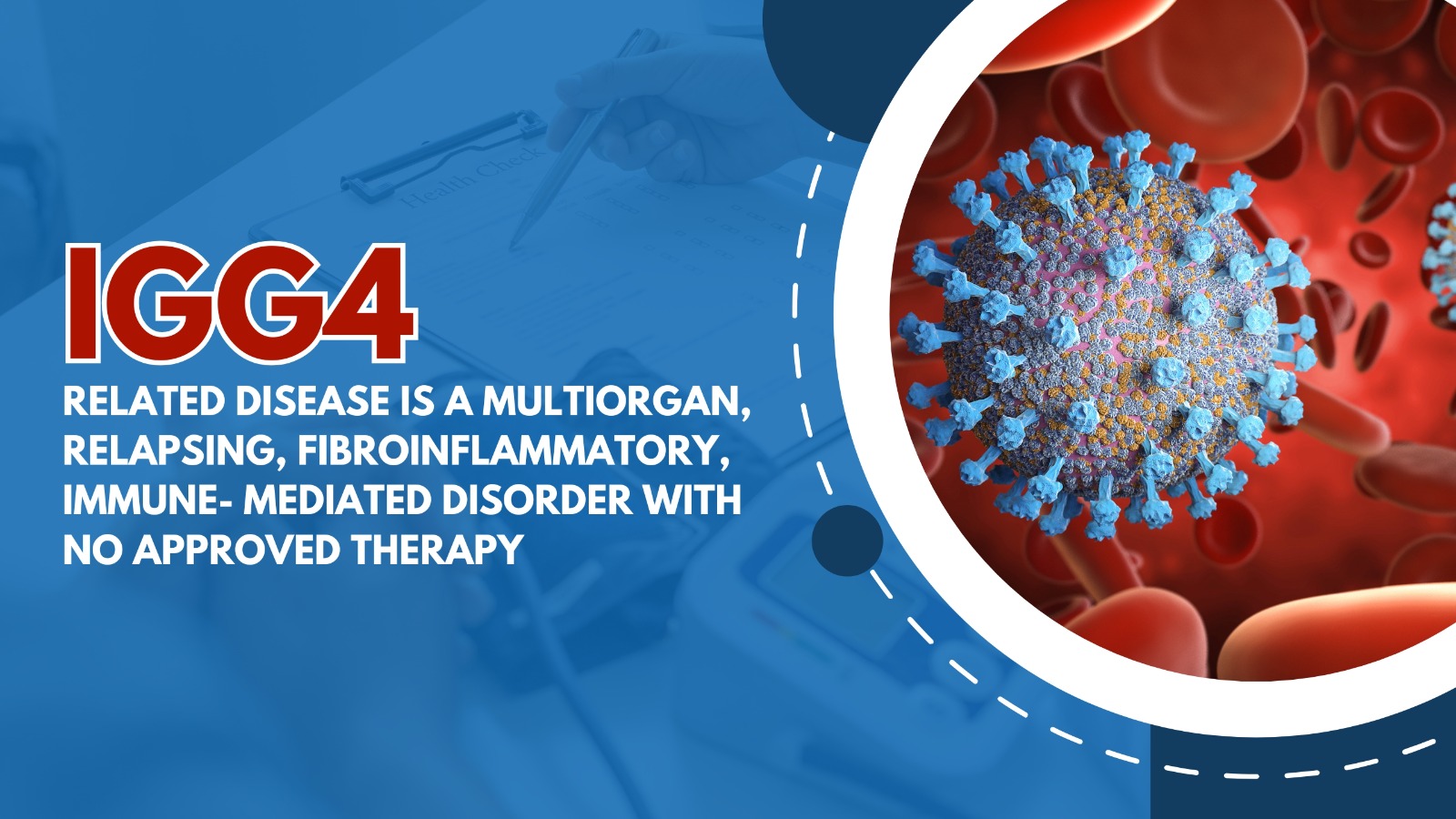What is IgG4-Related Disease?
Written by: Dr. Nandini K

IgG4-related disease is a multiorgan, relapsing, fibroinflammatory, immune- mediated disorder with no approved therapy.

Lets understand the disease first:
To better understand this let me give an example of Ms. Y a 67 yr old pt, she came with ℅ neck swelling, dryness of mouth.past k/h/o HTN migraine epilepsy. medical h/o – endometrial carcinoma post surgery and chemotherapy. Blood tests results showed:-ESR 49mm/hr CRP 1.8mg/dl negative for ANA CCP SSA,SSB. Antibodies: IgE,IgG,IgG4 elevated. CT neck: B/L enlarged submandibular glands
Incisional Biopsy of submandibular gland: sialadenitis, lymphoplasmacytic infiltrate and plasma cells stained positive for IgG4.
CT chest- pulmonary nodules and axillary lymphadenopathy
CT abdomen- retroperitoneal fibrosis
This patient’s neck swelling is due to swelling of submandibular glands (sialadenitis) and dry mouth [sjogrens ruled out by negative SSA,SSB antibodies] and multiorgan involvement is consistent with IgG4-RD which typically involves exocrine glands, lungs, pancreas, retroperitoneum etc,.
These patients are treated with immunosuppressants like glucocorticoids and rituximab to prevent remission and progression of fibrosis.
What is IgG4-RD?
IgG4-related disease is characterized by the development of mass lesions rich in CD19+ B cells that may drive inflammation and fibrosis directly by means of cytokines or indirectly by the activation of pathogenic T cells.
How does it cause multi organ dysfunction?
IgG4-related disease can affect the multiorgan system.
Oligoclonal expansions of plasmablasts and increased levels of serum IgG4.Antigen-driven interactions between B-cell subsets and various CD4+ and CD8+ T lymphocytes drives tissue injury and fibrosis and are associated with disease flares — periods of recurrent active disease associated with inflammation and fibrosis — may lead to progressive organ dysfunction and failure.
How is it treated?
Patients typically have improvement while receiving glucocorticoid therapy, but disease control is not maintained in most patients when glucocorticoids are tapered or discontinued. Moreover, the toxic effects of glucocorticoids are of great concern,because IgG4-related disease frequently affects middle-aged and older patients with coexisting conditions that are exacerbated by glucocorticoid use.
In an open-label study involving 30 patients, rituximab, a CD20- targeted, B-cell–depleting agent, appeared to induce remission, but data from randomized, controlled trials of rituximab for the treatment of persons with IgG4-related disease are lacking
What does new research say?
CD19 expression appears earlier than CD20 expression in B-cell development and persists later,notably on plasmablasts and some plasma cells.
Therefore, therapies targeting CD19 may be effective in the treatment of IgG4-related disease and may offer advantages over anti-CD20 strategies by means of targeting broader ranges of B cells that drive IgG4-related disease.
Inebilizumab, a humanized, afucosylated IgG1 kappa monoclonal antibody, specifically targets CD19 and results in rapid, deep, and durable B- cell depletion
